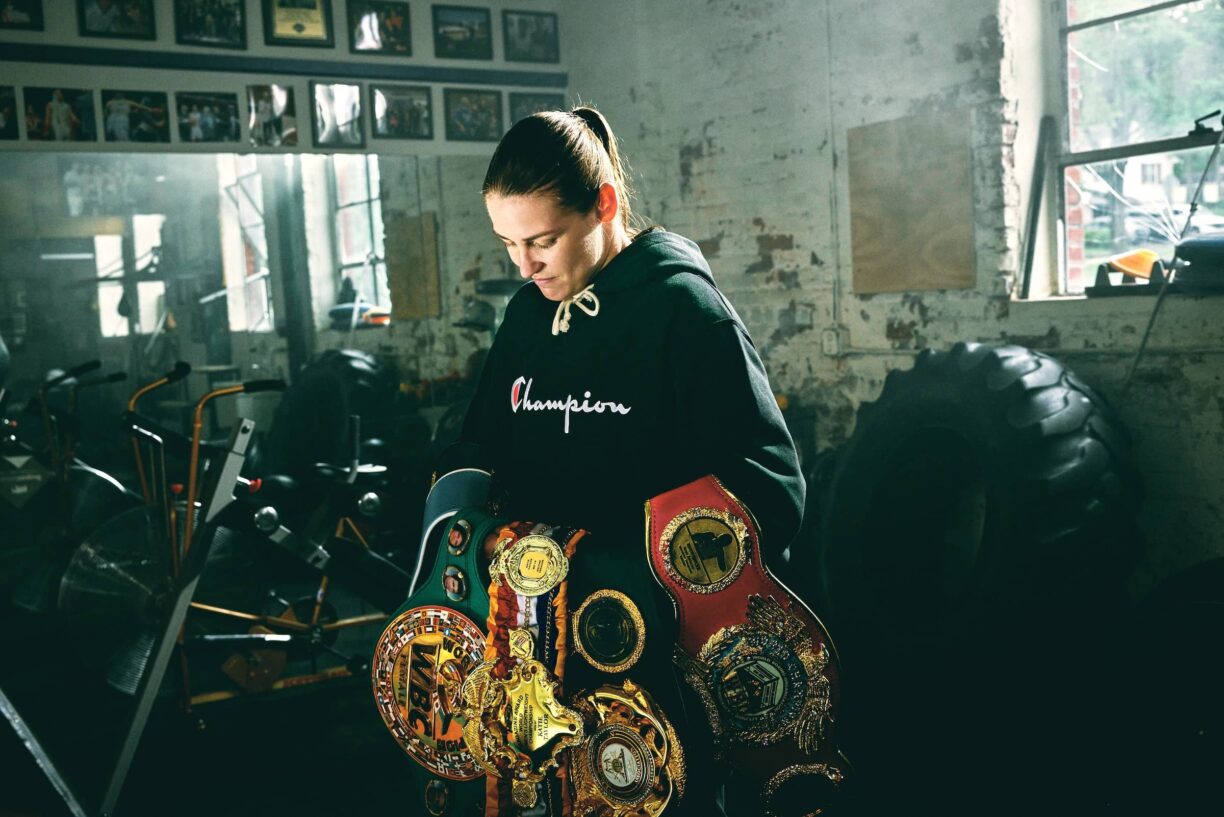So many people live with an invisible disability – something which massively affects them, but you probably wouldn’t know about it unless you were told.
The artist Tracey Emin has publicly spoken out about her experience with wearing a urostomy bag in an effort to raise awareness about living with a disability that is all too often misunderstood.
Emin recently underwent a series of major surgeries after being diagnosed with an aggressive form of bladder cancer, including a full hysterectomy, as well as the removal of her urethra, bladder, lymph nodes and part of her vagina and intestine.
Today on @BBCWomansHour: The Loneliness of the Soul. Grief, loss, longing and pain. I join @EmmaBarnett to talk about my selection of Edvard Munch works for my new exhibition @royalacademy Listen here https://t.co/qkwZlFMcZw pic.twitter.com/XdqURxXGva
— Tracey Emin (@TraceyEmin) May 5, 2021
Now cancer-free, she is using her platform to talk about the physical and mental impact of being fitted with a urostomy bag, which she will need to use for the rest of her life.
In an interview with The Guardian, the 57-year-old confessional artist said: “Having a urostomy bag is quite a disadvantage for lots of reasons and it’s something that most people would want to keep a secret.
It’s a very private thing because, basically, you’ve got part of your bodily function happening on the outside of your body.
“It leaks and things happen. I could be out somewhere public and it could happen – and people just think I’ve pissed myself or think I’ve been drinking.”

Urostomy pouches are surgical bags that are used to collect urine after bladder surgery. Patients who no longer have the full use of their bladder are fitted with a stoma, which is an opening on the abdomen that is connected to the urinary system to allow waste to be diverted out of the body and emptied by hand.
In a previous interview with BBC Newsnight, Emin said that the urostomy bag needs to be emptied as frequently as every 20 minutes, making it a major disability – yet as it’s hidden from view, many people don’t understand the devastating effect it can have on a person’s day-to-day life.
“For many people, there’s the practical element of getting used to fitting the bag properly, so it doesn’t leak, and until you get comfortable with touching the stoma area, you might experience accidents,” says Dany Bell, Macmillan’s strategic advisor for treatment, medicines and genomics.
“This can have a detrimental effect on a person’s confidence with being out in public; even once you are comfortable with fitting the bag, there’s a constant worry that you might need to empty it too.”
She explains that people with this invisible disability experience a layer of stress and anxiety when leaving the house, which friends and family might not fully understand.
“Many people feel as though they always have to plan ahead before leaving the house, making sure they’re prepared to change their bag, as well as carrying a change of clothes in case they have an accident,” she continues. “They may also need to check where public toilets are available.”
Nearly two years with a bag and had the most disastrous bag change thus far. A bit demoralising. But never mind. On we go.
— Bagged-Up. Public Relations With a Stoma (@bagged_a) November 9, 2019
Not only does the person with the stoma have to cope with loss of control over their urinary function, it can have a big impact on their confidence, self-esteem and identity too.
“Clothing has to be practical, as you need to wear things that aren’t tight around the waist – the same goes for underwear too,” says Bell.
“While it doesn’t change a person’s ability to have sex, it can really impact your own sexuality and your body confidence – as you might worry that people won’t find you attractive because your own perception of your body image has changed.”
She says that the voice of celebrities and public figures sharing their personal experiences, such as Emin, is incredibly vital in raising awareness and educating people on the demands it makes on everyday life.
“It’s very hard to be OK when you have an accident in public, as it can cause frustration and embarrassment, so having someone like Tracey Emin speak out helps to remove that taboo,” says Bell.
"I cried on my own for half an hour."
— ColostomyUK (@ColostomyUK) June 30, 2019
Father Mark Turner talks about his experience of living with a stoma, and the challenges that this can bring both physically and mentally.https://t.co/2Z6lSqmK8l #StomaStory #Colostomy #Ileostomy #Urostomy #Charity
“There are lots of people out there living with colostomies and urostomies that could be in a difficult situation,” she adds – but sympathy and support from others can often be in short supply when they have an accident. “People’s reactions should be kind and not judgemental,” she says.
About 10,000 people are diagnosed with bladder cancer every year and it’s the 10th most common cancer in the UK, according to the NHS, If you’ve recently been fitted with a urostomy, Bell says there is plenty of support available.
“The main thing is that with the right planning and support, people can still do the things that they love with a urostomy bag. The stoma nurses that support how you manage difficulties are key, but peer support is helpful too.
“Macmillan have a huge online peer-support forum which people can sign up to anonymously. Many people say that hearing about other people’s experiences is a much easier way to come to terms with the disability than trying to work through it on your own.
“There’s lots of practical advice on there, like the best underwear and clothing brands that are the most comfortable to wear with a urostomy bag.”
Bell adds that there are also face-to-face support groups too: “You can put your postcode into the Macmillan website to see if there’s a stoma or bladder cancer group in your local area.
“As well as our support line, Macmillan also have a toilet card and keyring that’s designed to give you urgent access to a toilet when out in public, which you can download for free from our website.
“Over the past few years, we’ve worked with high street shops – like Boots and Marks & Spencer – to raise awareness about how cancer treatment can affect bowel and bladder function.”





